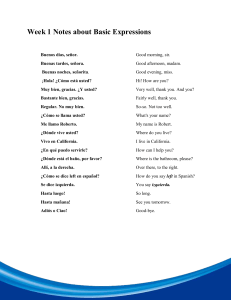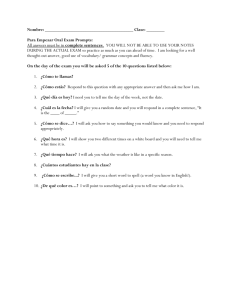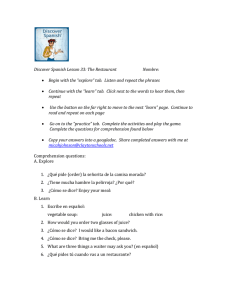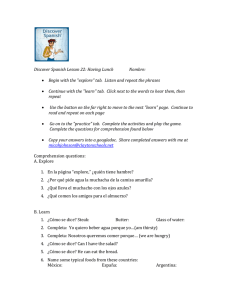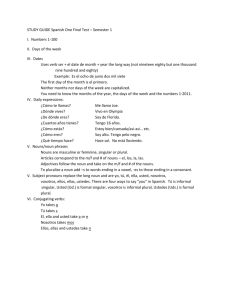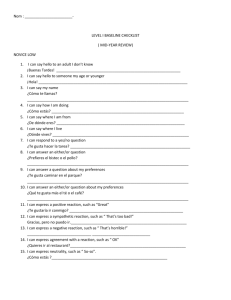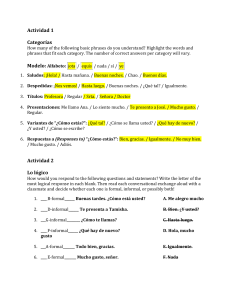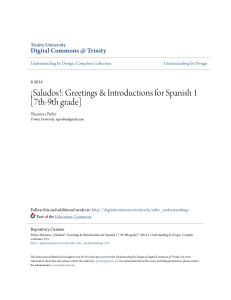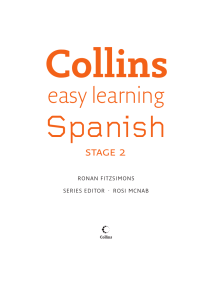Spanish 1 Notes - 1 Contextos
advertisement
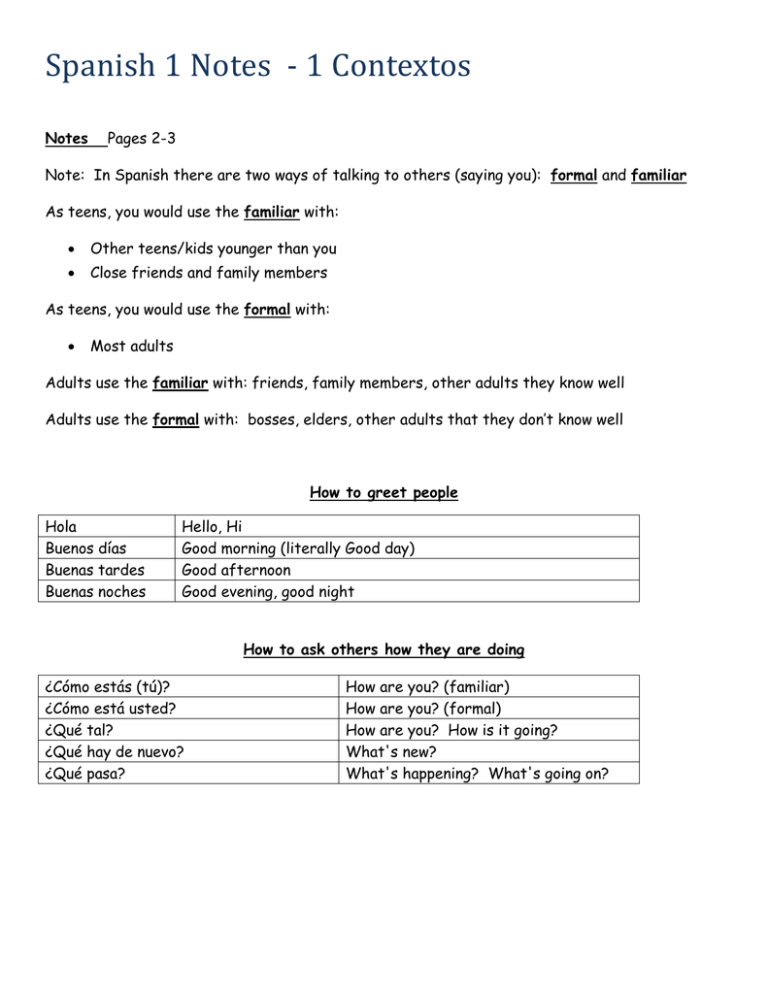
Spanish 1 Notes - 1 Contextos Notes Pages 2-3 Note: In Spanish there are two ways of talking to others (saying you): formal and familiar As teens, you would use the familiar with: Other teens/kids younger than you Close friends and family members As teens, you would use the formal with: Most adults Adults use the familiar with: friends, family members, other adults they know well Adults use the formal with: bosses, elders, other adults that they don’t know well How to greet people Hola Buenos días Buenas tardes Buenas noches Hello, Hi Good morning (literally Good day) Good afternoon Good evening, good night How to ask others how they are doing ¿Cómo estás (tú)? ¿Cómo está usted? ¿Qué tal? ¿Qué hay de nuevo? ¿Qué pasa? How are you? (familiar) How are you? (formal) How are you? How is it going? What's new? What's happening? What's going on? How to respond to inquiries about well-being For ¿Cómo estás?, ¿Cómo está usted and ¿Qué tal? , use: bien muy bien no muy bien Regular well very well not very well So-so, OK For ¿Qué hay de nuevo? and ¿Qué pasa? respond with: Nada nothing How to introduce yourself and others Me llamo…….. ¿Cómo te llamas (tú)? ¿Cómo se llama usted? Encantado (a) Mucho gusto. El gusto es mío Igualmente Te presento a…… Le presento a….. Éste es ……. Ésta es…. señor (Sr.) don señora (Sra.) doña señorita (Srta.) nombre My name is… (literally: I call myself) What’s your name? (familiar) What’s your name? (formal) Nic e to meet you. (literally: enchanted) Nice to meet you. The pleasure is mine. Likewise I would like to introduce you to… (fam.) I would like to introduce you to… (form.) This is…… (when you're introducing a male) This is…. (when you're introducing a female) Mr. Mrs. Miss name To redirect the question back to the original speaker: ¿Y tú? ¿Y usted? And you? (familiar) And you? (formal) Expressions of politeness por favor (Muchas) gracias. De nada No hay de qué. Perdón Con permiso Lo siento please Thanks (a lot). You’re welcome. You're welcome Pardon (me) Pardon (me) I'm sorry. To ask about where people are from ¿De dónde es usted? Where are you from? (formal) ¿De dónde eres? Soy de…. Where are you from? (familiar) I'm from Ways to say good-bye/take leave Adiós Nos vemos. Hasta pronto Hasta luego Hasta la vista Hasta mañana Chau Saludos a… Good-bye See you. See you soon. See you later. See you later. See you tomorrow. Bye Greetings to….
